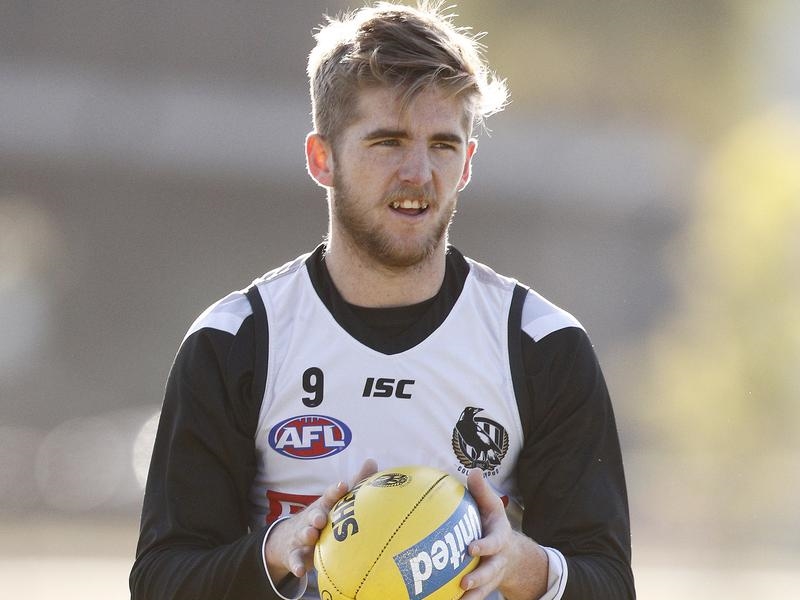
Collingwood defender Sam Murray is free to play in the AFL next season after receiving his punishment for failing a game-day drugs test last year.
The AFL Anti-Doping Tribunal has imposed an 18-month suspension, backdated to August 17 last year when he began serving his provisional ban.
Murray’s ban will expire on February 16, 2020 and he will be eligible to return to play the following day.
“I want to thank my family and friends, management, Collingwood Football Club, legal team and the AFL Players Association for their continued support,” Murray said in a statement.
During the past 12 months I have been able to reflect on what is important to me.
“I’m more committed than ever before to continue my AFL career and can now focus on doing everything in my power to keep that dream alive.”
Murray is permitted under the AFL’s anti-doping code to return to training on December 17.
It is unclear, however, whether Murray, who has remained on the Magpies’ rookie list while sidelined, will be recontracted next season.
Murray tested positive to an illicit substance – believed to be cocaine – in July 2018, his debut season in the AFL.
The 21-year-old was investigated by the Australian Sports Anti-Doping Authority and had been facing up to a four-year ban.
It had been expected however that Murray’s provisional suspension would mitigate his sanction.
Collingwood duo Josh Thomas and Lachie Keeffe received two-year doping bans in 2015 after testing positive to the banned substance Clenbuterol.
Keeffe was delisted by the Magpies and picked up by GWS in 2017, while Thomas remains at Collingwood and has played 18 games this season.
The tribunal sat earlier this month to discuss Murray’s case which was heard by a former Supreme Court judge.
“The AFL anticipates that the tribunal will provide the parties with the written reasons for its decision shortly,” a league spokesman said in a statement.
“Under the code, the parties may commence an appeal within 21 days of the written reasons being delivered with WADA having some subsequent appeal rights.”
